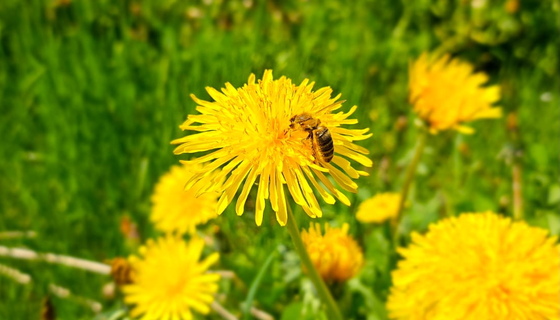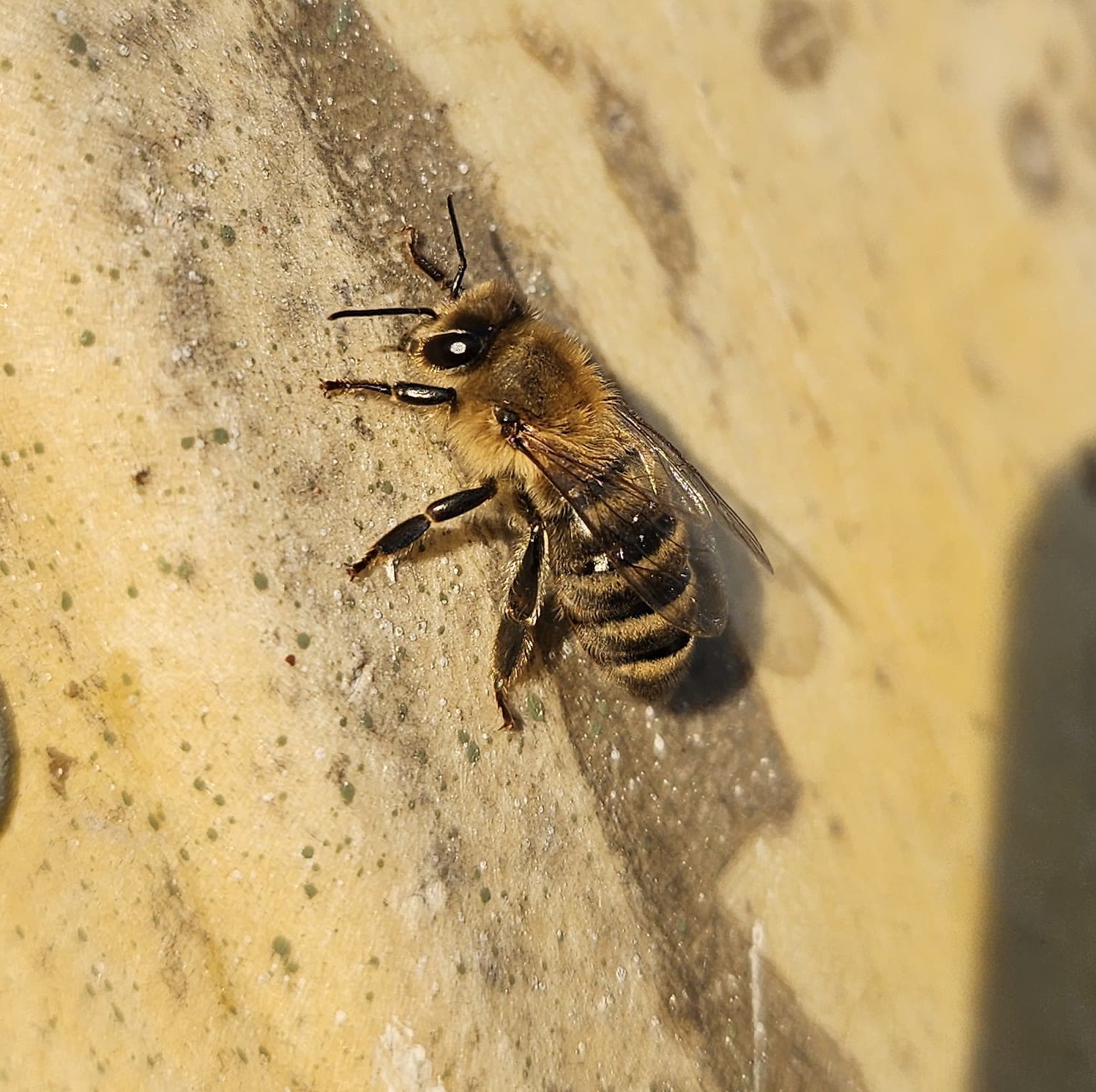Celebrating & Protecting the Bees

If You Ate Today, Thank a Bee!
World Bee Day is observed on May 20 every year. Ontario is home to 700 species of bees, and they are a sacred part of Nature. Bees and other pollinators are busier than most of us realize, so World Bee Day reminds us to be thankful for the essential role they play in our ecosystem by providing us with fruit, vegetables, and grains. They are vital for food production as they demonstrate the interconnectedness of life on our planet.
 Keep in mind that a worker honey bee lives less than 60 days, visits thousands of flowers, and produces less than a teaspoon of honey in her lifetime. For us, it is only a teaspoon of honey, but for the bee, it is a life's work. Thank you, Bees!
Keep in mind that a worker honey bee lives less than 60 days, visits thousands of flowers, and produces less than a teaspoon of honey in her lifetime. For us, it is only a teaspoon of honey, but for the bee, it is a life's work. Thank you, Bees!
Sadly, pollinators are currently in decline due to habitat loss, the use of pesticides, climate change, monoculture farming, bee hive collapse syndrome, varroa mites and more. Let’s give thanks and express our gratitude to these awesome insects by doing our part to help them. Any small action helps! We need pollinators and now, they need us. Here are ways you can help:
- Plant bee-friendly plants: flowers like Asters, Sunflowers, Hollyhocks, Calendula, Bee balm, Goldenrod, and Coneflowers to name a few; plus herbs such as Borage, Lavender, and Fennel.
- Studies have shown that native plants support a greater number and diversity of insects that depend on those plants for food and shelter than non-native plants, so include native plants in your garden wherever you can.
- Avoid using pesticides.
- Buy local honey.
- Leave dandelions uncut in the spring. They provide an early source of nectar to bees.
- Leave dead branches in garden in the spring, as they may shelter overwintering bees.
- Purchase or make a 'bee hotel' in garden to provide additional shelter options.
- Support local bee associations.
- Adopt a hive.
- Create a community bee garden.
- Take courses on natural beekeeping/gardening.
- Buy bulbs and plants that have not been treated with non-neonicotinoid pesticides which are harmful to bees.
To learn more about bee biology and beekeeping, please contact Pauline or email ammatoronto@ammagroups.org
Om Lokah Samastah Sukhino Bhavantu
